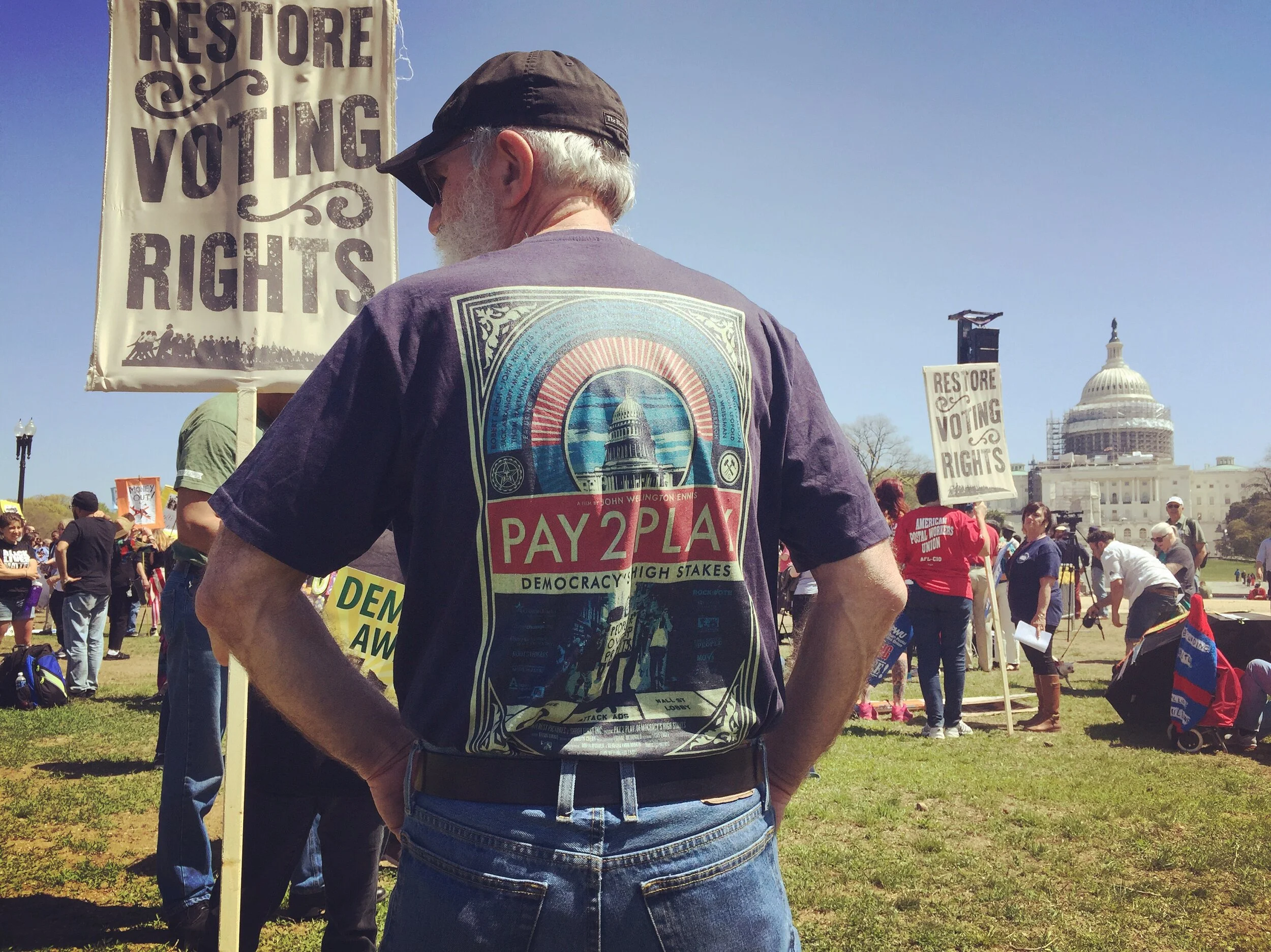Reform rarely arrives as a silver bullet, clearing danger in a single shot. The way reform takes hold is more gradual and disparate, like ivy or tree branches growing, until one day you notice all the leaves you are surrounded by.
With the Run Warren Run campaign now retired, progressives will look for a new hope to upend the system. Even as Hillary tacts continually leftward, calling for a constitutional amendment in response to Citizens United, Bernie Sanders has stepped up to run for president on the very inequality that most Americans are most concerned about, according to a new CBS/NYT poll. “Almost three-quarters of respondents say that large corporations have too much influence in the country.”
In another new poll from CBS/NYT, most Americans recognize our campaign finance system for what it is, a morass of wealth and influence drowning out citizens voices in elections:
“By a significant margin, they reject the argument that underpins close to four decades of Supreme Court jurisprudence on campaign finance: that political money is a form of speech protected by the First Amendment. Even self-identified Republicans are evenly split on the question.”
Some seek to minimize these findings, because of a caveat included in the NYT article: “Virtually no one in the poll ranked campaign financing as the most important issue facing the country.” I could speculate that if you asked Americans what was the most important issue facing the country in 1800, virtually no one would identify ending slavery. That doesn’t mean it is widely-held as profoundly wrong, it’s just seemingly impossible to change.
Many Americans think things are impossible to change because not enough people feel the same way they do. But what if they found out most people shared their feeling—that the U.S. campaign process needs fundamental overhaul just to begin to try to be fair? When our Congress can’t reliably agree to keep the government open?
Here is a harsh truth about this movement to reform our campaign finance system and why you won’t hear much about it on TV, like when a promising amendment is introduced into the 114th Congress: because networks make so much money from campaign ad buys, media conglomerates aren’t really looking to upset the business model anytime soon. Local TV stations in Ohio during campaign season can just run a full hour of ads, and forgo programming altogether, because they make so much more money from inflated ad rates—ads on publicly-owned airwaves to begin with.
Even when a grandiose movie moment happens in real life, such as Doug Hughes spectacular arrival at the U.S. Capitol on April 15 via gyrocopter, the media will all but censor his clearly stated intent of delivering letters to Congress demanding they act on campaign finance reform. Capitalizing on the loaded suggestion of “mailman” in the headlines, news outlets overlooked his explanations about needing a constitutional amendment in response to Citizens United. Yet there was virtually no coverage of how Doug Hughes had the book thrown at him, facing up to 9 years, and is now being let go by the U.S. Postal Service for his demonstration.
But like Doug Hughes has found, he is not alone, many others are working away without being the subjects of reality TV shows. From Washington to Florida to California and everywhere in between, Americans are working on the state, county, city, and local levels on reform. If you put your ear to the ground, you can actually listen to the dissent growing.


